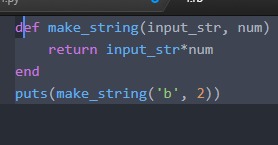티스토리 뷰
class Child : public Mother // derived class
{
};
int main()
{
Mother mother;
mother.setValue(1024);
cout << mother.getValue() << endl;
Child child;
child.setValue(122);
cout << child.getValue() << endl;
}
// 1024
// 122
child 클래스가 mother 클래스에 있는 것들을 사용가능.
#include<iostream>
using namespace std;
class Mother
{
// protected를 사용하면 private를 유지하면서 자식들한테는 허용!
public:
int m_i;
public:
Mother(const int& i_in)
: m_i(i_in)
{
cout << "Mother Constructor" << endl;
}
void setValue(const int& i_in)
{
m_i = i_in;
}
int getValue()
{
return m_i;
}
};
// 이름이 똑같은 setValue, getValue를 구현했을시, 자기 클래스에 있는것을 우선
class Child : public Mother
{
private:
double m_d;
public:
Child(const int & i_in, const double & d_in)
// : m_i(i_in), m_d(d_in);
: Mother(i_in), m_d(d_in)
{
}
void setValue(const int & i_in, const double & d_in)
{
Mother::setValue(i_in);
m_d = d_in;
}
void setValue(const double & d_in)
{
m_d = d_in;
}
double getValue()
{
return m_d;
}
};
int main()
{
Mother mother(1024);
// mother.setValue(1024);
cout << mother.getValue() << endl;
Child child(1024, 128);
// child.Mother::setValue(1024);
// child.setValue(122);
cout << child.getValue() << endl;
cout << child.Mother::getValue() << endl;
}
// Mother Constructor
// 1024
// Mother Constructor
// 128
// 1024
Person.h
#pragma once
#include<iostream>
#include <string>
class Person
{
private:
std::string m_name;
public:
// 1.
// Person()
// : m_name("No Name")
// {}
// 2.
Person(const std::string & name_in = "No Name")
: m_name(name_in)
{}
void setName(const std::string & name_in)
{
m_name = name_in;
}
std::string getName() const
{
return m_name;
}
void doNothing() const
{
std::cout << m_name << " is doing nothing " << std::endl;
}
};
Teacher.h
#pragma once
// #include <string>
#include "Person.h"
class Teacher : public Person
{
private:
///TODO: more members like home address, ...
public:
Teacher(const std::string & name_in = "No name")
: Person(name_in)
{}
void teach()
{
std::cout << getName() << " is teaching " << std::endl;
}
friend std::ostream & operator << (std::ostream & out, const Teacher & teacher)
{
out <<teacher.getName();
return out;
}
};
Student.h
#pragma once
#include "Person.h"
class Student : public Person
{
private:
int m_intel; // intelligence
public:
Student(const std::string & name_in = "No name", const int & intel_in = 0)
// : m_name(name_in), m_intel(intel_in)
: Person(name_in), m_intel(intel_in)
{}
void setIntel(const int & intel_in)
{
m_intel = intel_in;
}
int getIntel()
{
return m_intel;
}
void study()
{
std::cout << getName() << " is studying " << std::endl;
}
friend std::ostream & operator << (std::ostream & out, const Student & student)
{
out << student.getName();
return out;
}
};
school.cpp
#include "Student.h"
#include "Teacher.h"
int main()
{
Student std("Jack Jack");
std.setName("Jack Jack 2");
std::cout << std.getName() << std::endl;
Teacher teacher1("Dr. H");
teacher1.setName("Dr. K");
std::cout << teacher1.getName() << std::endl;
std::cout << std << std::endl;
std::cout << teacher1 << std::endl;
std.doNothing();
teacher1.doNothing();
std.study();
teacher1.teach();
// 자식클래스에 구현된걸 부모클래스에는 가져다 못쓴다!
return 0;
}'언어 > C++' 카테고리의 다른 글
| 11.5 상속과 접근 지정자 (0) | 2020.05.03 |
|---|---|
| 11.3 유도된 클래스들의 생성 순서 / 11.4 유도된 클래스들의 생성과 초기화 (0) | 2020.05.03 |
| 10.4 제휴 관계 (0) | 2020.04.27 |
| 10.1 객체들의 관계 / 10.2 구성 관계 (0) | 2020.04.26 |
| 9.8 형변환을 오버로딩 하기 / 9.9 복사 생성자, 복사 초기화 반환값 최적화 (0) | 2020.04.25 |
공지사항
최근에 올라온 글
최근에 달린 댓글
- Total
- Today
- Yesterday
링크
TAG
- call by reference
- 회전리스트
- timecomplexity
- 자료구조
- 비트필드
- 알고리즘
- 포인터
- 구조체
- 배열
- 종류
- 3차원 배열
- 다차원 배열
- 시간복잡도
- 1차원 배열
- 공용체
- 프로그래밍
- call by value
- 공간복잡도
- 파이썬
- codeit
- 형승격
- 강의
- Algorithm
- 재귀함수
- 공부
- inflearn
- 직접 지정
- 간접 지정
- 2차원 배열
- C
| 일 | 월 | 화 | 수 | 목 | 금 | 토 |
|---|---|---|---|---|---|---|
| 1 | 2 | 3 | 4 | |||
| 5 | 6 | 7 | 8 | 9 | 10 | 11 |
| 12 | 13 | 14 | 15 | 16 | 17 | 18 |
| 19 | 20 | 21 | 22 | 23 | 24 | 25 |
| 26 | 27 | 28 | 29 | 30 | 31 |
글 보관함
